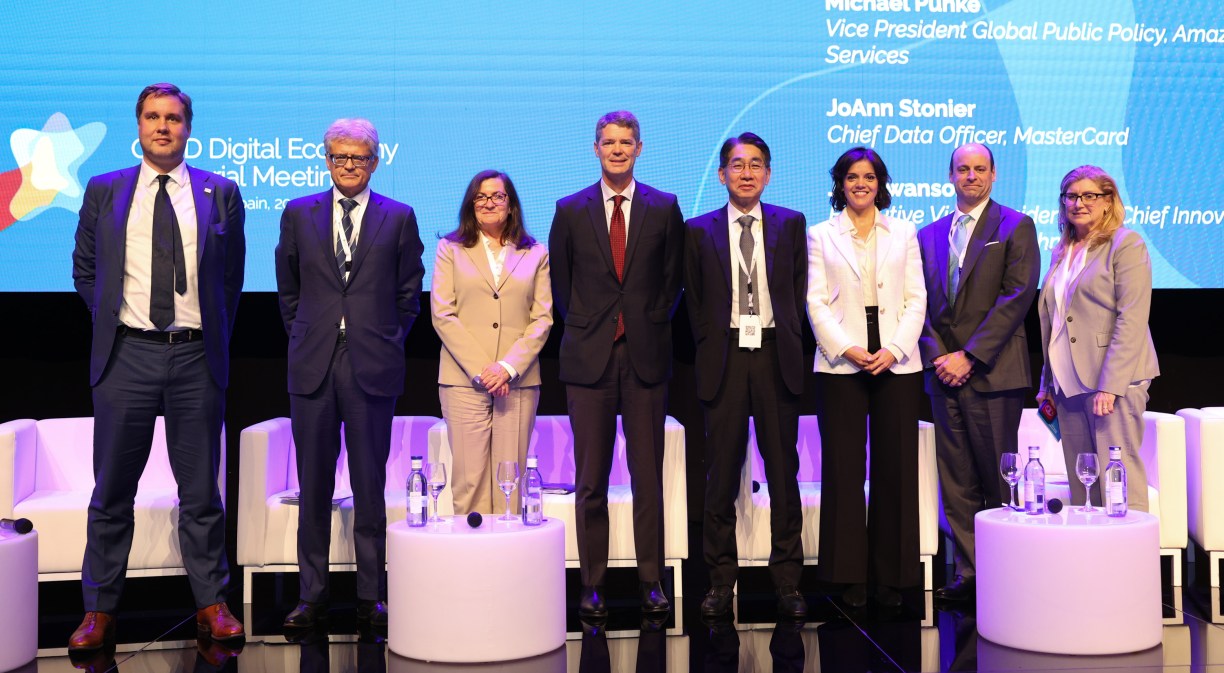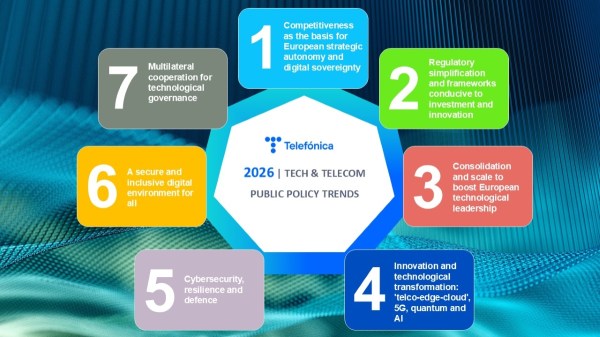Last week more than 500 people gathered in Gran Canaria to move towards a sustainable, inclusive and resilient digital future in which human rights are preserved both online and offline. The OECD provided the meeting point for building consensus among stakeholders around common principles and aspirations.
The ‘Canary Islands Declaration’ for a reliable, sustainable and inclusive digital future summarises the result of months of work that culminated in the ministerial week organised between 13 and 15 of December in Gran Canaria. The fourth ministerial meeting on the digital economy held to date and the first in Europe.
Cybersecurity recommendations
Cybersecurity is one of the priorities to an exponential increase in malicious cyberactivity after the pandemic. Hence, agreement has been reached on four recommendations, developing a comprehensive and coherent policy framework to address vulnerabilities and strengthen digital security for prosperity. The underlying question is how to better manage cybersecurity risks by incentivising public-private cooperation.
This is a common challenge that requires a strategic approach in which all relevant actors, according to their role, manage digital security risks. This is essential for the functioning and digital transformation of our economies and societies. These recommendations promote international and multi-stakeholder cooperation with a particular focus on a risk-based approach and in areas such as security of products and services; security of communications infrastructure; addressing vulnerability, empowering vulnerable users and developing countries, and a coordinated response to incidents, based on a better understanding of economic incentives and the effectiveness of policy approaches to digital security.
Digital rights at the heart of the OECD
Digital rights, promoted by the Spanish government, have been at the centre of the reflections of this ministerial week. Putting people at the heart of the digital transformation also means strengthening in practice the respect and guarantee of people’s rights in their dual capacity as citizens and consumers. This is critical as there is a complex environment from a jurisdictional and enforcement point of view.
Spain’s Charter of Digital Rights has been confirmed as a global reference framework in this area. In this aspect, the Declaration calls for fostering a digital transformation that is “human-centred and rights-oriented, with “strong protections for personal data, laws and regulations fit for the digital age, and a trustworthy, secure, responsible and sustainable use of emerging digital technologies and artificial intelligence”.
Privacy protection and transborder data flows
At the same time, it is worth highlighting the agreement reached on access by governments to data managed by private companies that aims to reinforce “trust in cross-border flows of personal data by building consensus on how like-minded democracies protect privacy and other human rights and freedoms when accessing personal data held by private sector entities for law enforcement and national security purposes”. This is undoubtedly a very important step in strengthening the attempt to clarify the situation of cross-border data flows, especially between Europe and the US.
Creation of the Global Technology Forum
The creation of a Global Technology Forum was also one of the expected surprises of the meeting. It will be a forum for multi-stakeholder dialogue to anticipate the opportunities and risks presented by technology in the long term. To this end, this structured dialogue will be able to propose the best digital policies, appropriate to the implications of emerging technologies and business models; to share best practices for the governance of technologies; or to build trust among participants and foster common and coherent approaches based on mutual interests and democratic values.
Digital infrastructure: the backbone of digitalization
Finally, it is worth mentioning that digital infrastructures remain the top priority in the digital economy in all countries. Connectivity is the backbone of digitalisation. Therefore, there were proposals and debate on how to improve investment conditions and accelerate the deployment of fibre and 5G in the different regions of the world.
The Declaration highlights the commitment to foster ubiquitous access to connectivity by promoting competition and investment incentives, strong legal and regulatory frameworks, and support for efficient, transparent and predictable spectrum management geared towards long-term social and economic benefits. It also underlines the idea of the need to promote more competitive markets that favour innovation and different business models.
Latin America and the digital economy
Digital divides is also a hot topic in the digital economy. “Everyone has the same opportunities to participate, learn, work, explore, innovate, contribute and benefit from the digital transformation”.
Telefónica together with Business at OECD organised a workshop focusing on Latin America, considered to be one of the most unequal regions in the world. An expansion of connectivity is undoubtedly one of the greatest allies to reduce the gaps in the region. This workshop highlighted the level of agreement on the fundamental changes required in Latin American regulatory frameworks to increase digital inclusion, in particular to promote innovation and collaborative approaches, but also to substantially reduce spectrum fees to expand network coverage.
A recent OECD report for Colombia’s rural policy review asserts that spectrum licences should not be overpriced so that they do not maximise tax revenues but increase the overall welfare of the country, given the positive spill-over effects of connectivity on other sectors of the economy, which we believe is replicable for other countries.
The year 2023 will be an opportunity for Latin America. At the Ibero-American Summit is expected a declaration on digital rights for Latin America and the European Union-Latin America digital alliance will be the kick-off to develop specific projects within the Global Gateway initiative. This will provide relevant issues for the European Union, Latin America and Caribbean Summit to be held during the Spanish presidency of the European Union. Organisations such as the OECD, SEGIB, ECLAC and the European Union joining forces and rowing in the same direction to work with the countries of the region can be a key aspect for connectivity, accelerating digital transformation, attracting investment and contributing to the development of the economy.
Global Gateway can become the instrument that reactivates these ties and significantly helps to project and maintain this alliance in the digital sphere over time, and that it bears positive fruits in different areas, such as: the convergence of regulatory and political frameworks and the development of specific digitalisation projects based on public-private alliances that contribute to the acceleration of the provision of digital infrastructure, digital transformation and, therefore, to the prosperity of the region in a significant way.







